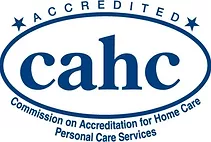More and more people know someone who has Alzheimer’s disease. And more families are learning that their aging family members have the condition. The illness affects millions of people and typically requires a great deal of support. Learning as much as possible about Alzheimer’s disease helps families make the best possible decisions for their loved ones. Alzheimer’s care services can assist with education, hands-on assistance, and so much more.
What Is Alzheimer’s?
Alzheimer’s disease is a progressive degenerative neurological condition. It affects cognitive functions in older people, but it can occur in younger people as well. Memory loss is a common initial symptom, but Alzheimer’s disease affects other areas of brain function, too. People with Alzheimer’s disease have trouble with judgment, reasoning, problem-solving, communication, and the ability to perform daily activities. Eventually, Alzheimer’s disease has physical effects as well.
Stages of Alzheimer’s Disease
Alzheimer’s disease progresses in stages and each one brings new difficulties. In the earliest stages, patients may have trouble with memory issues, like forgetting recent events or new information. They may still be independent, but need help with routines and reminders. In the middle stage, memory loss gets worse and patients are confused more often. They may start to need more help from home care providers and safety becomes a bigger concern. The later stages often bring loss of communication and a decline in physical abilities, like walking. Alzheimer’s care providers may need to help patients around the clock during the last stages.
Compassionate Care for Alzheimer’s Patients
Caring for seniors with Alzheimer’s disease means offering a safe and dignified environment. Alzheimer’s care providers work to understand what patients need and how to best meet those needs. They help families establish routines that support patients and they offer respite care so family caregivers can take time away.
Flexibility Is Important
Much of what happens with Alzheimer’s patients is unpredictable. Routines that support seniors’ needs are very helpful and reduce anxiety, but they need to be flexible, too. Responding with patience and flexibility reduces stress for everyone involved, which makes the experience better all the way around.
Simplify the Environment
Complicated scenarios just don’t work well for Alzheimer’s patients. Alzheimer’s care providers help families to simplify everything from tasks to the home environment to create a space that is safe and less confusing. Reducing clutter, clearing pathways, and labeling rooms and containers creates a more comfortable space for people with Alzheimer’s disease.
Prioritize Comfort and Dignity
Above all, responding compassionately to Alzheimer’s patients means focusing on comfort and dignity. People with Alzheimer’s disease still have preferences and needs. They also still want to feel as if they have some control over their lives. Offering choices as much as possible helps with all of this.
Being a primary family caregiver to someone with Alzheimer’s disease is a big job. With the support of experienced Alzheimer’s care providers, families have better access to the support and tools they need to make sure that the seniors they love have the kind care they need.
If you or a senior loved one are considering Alzheimer’s care in Livingston, NJ or surrounding areas, please contact the caring staff at Adult Alternative Home Care today. (888) 664-1769
- Home Care Assistance Can Help Seniors Manage Self-Care Tasks - April 24, 2025
- The Superfood You Shouldn’t Miss - April 9, 2025
- First Home Care Visit? Here’s The Inside Scoop - April 9, 2025


